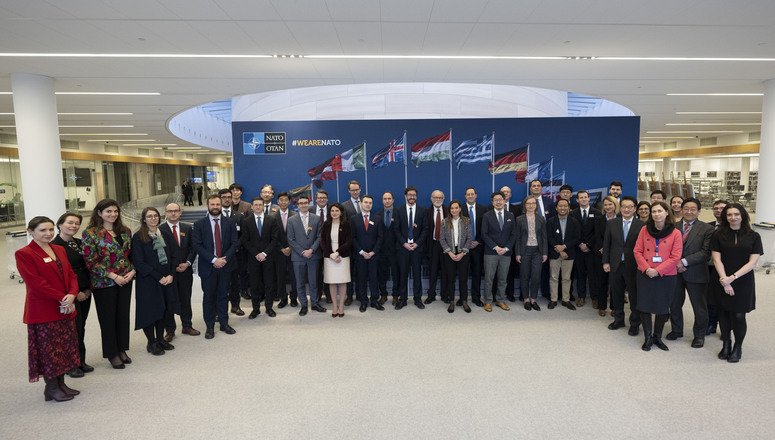On 25 January 2023, NATO launched an initiative named ''Futures in the Indo-Pacific''. This endeavour has been developed through the NATO Science for Peace and Security (SPS) Programme, and will consist of a series of discussions amongst experts from Belgium, Australia, France and Japan, for the next two years. Their exchanges will examine relevant developments in the Indo-Pacific and their potential implications for security in the Euro-Atlantic area, hence contributing to furthering NATO's cooperation with its partners in the Indo-Pacific.

Participants in the launch of the NATO Science for Peace and Security initiative "Futures in the Indo-Pacific"
The launch of "Futures in the Indo-Pacific" was marked by an official event at NATO Headquarters in Brussels, with the participation of experts from institutions based in two NATO Allies and two partner countries in the region: the Centre for Security, Diplomacy and Strategy (CSDS) of the Brussels School of Governance-VUB, the National Institute for Defense Studies (NIDS) in Japan, the Australian Strategic Policy Institute (ASPI) and the Centre for International Studies (CERI) at Sciences-Po Paris.
"Our unity is our strength and partnerships play an important role in the new international security landscape," said Mrs. Carmen Romero, Deputy Assistant Secretary General for Public Diplomacy, in her introductory remarks at the event. She also stressed the importance of building strong partnerships with countries in the Indo-Pacific, in line with NATO's new Strategic Concept, which underscores the importance of the Indo-Pacific region for NATO, given that developments in that region can directly affect Euro-Atlantic security. Furthermore, she highlighted the historic participation of the leaders of Australia, Japan, New Zealand and Republic of Korea in the 2022 NATO Summit in Madrid.
Three more events are scheduled throughout 2023, in Canberra, Tokyo and Paris, with a final conference planned in 2024 in Brussels.






